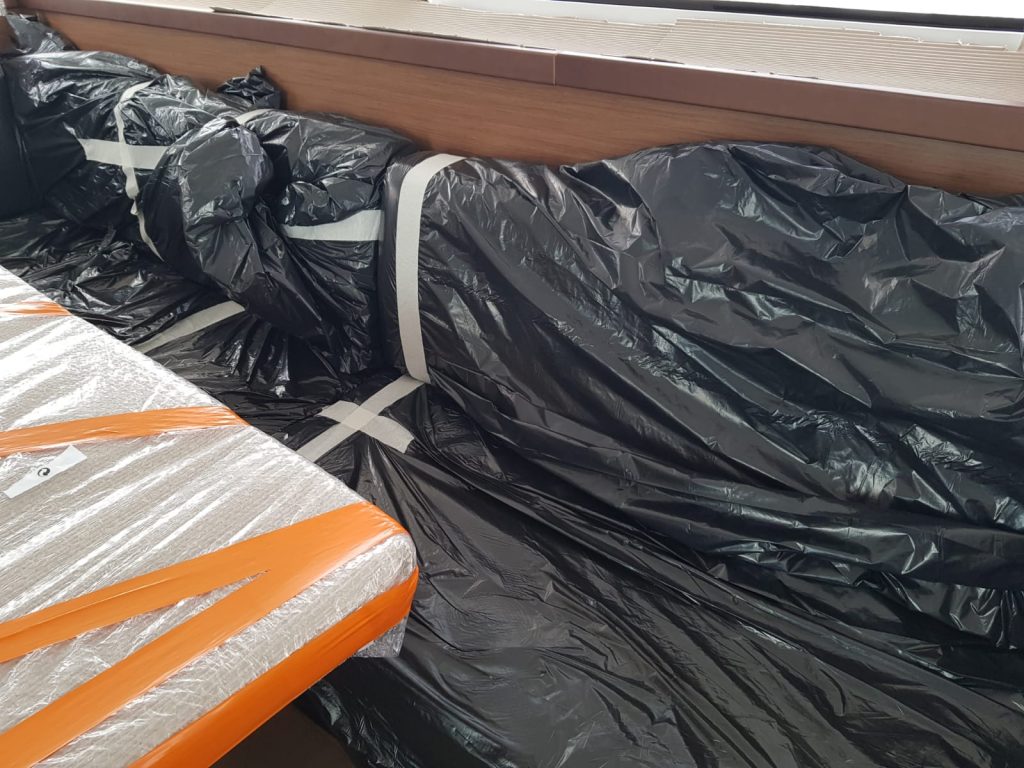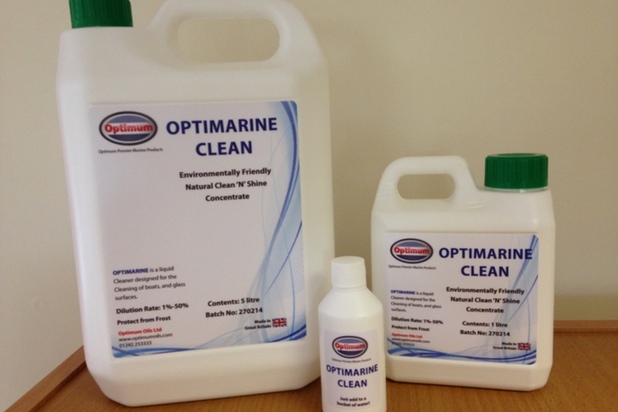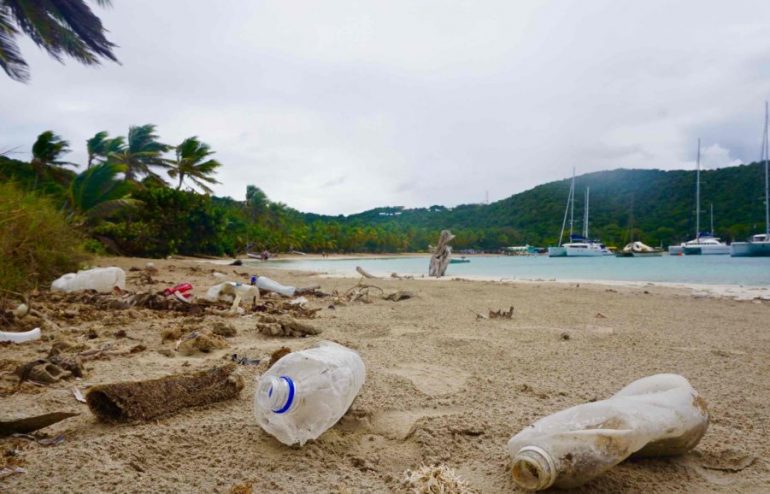Climate Conscious Yacht Delivery: The Ultimate Guide
As sailors, we see first-hand the effects of climate change. From the increasing plastic and debris in our oceans, to the decline in outstanding natural habitats. While we have been employing best practice when it comes to conservation for many years, including fines for fuel spillage and the conservation laws surrounding areas such as the Galapagos. There is still so much that we can do to protect our oceans, as we see them slowly die before our eyes. This post is a handy guide for best practice while completing sailing deliveries.
REDUCE REUSE RECYCLE REFUSE
Yacht deliveries are all about trying to be as economical as possible; trying to use the least amount of fuel and create the minimum amount of waste. This handy guide just reinforces the practices most of our captains do without even thinking, while also providing some extra little tips to be more climate conscious as well as money conscious.
PROVISIONING
- The ultimate philosophy is to be mindful of how much you are bringing onto the ship, minimize the amount of packaging that you bring, minimize the amount you will have to throw away at the other end of the delivery.
- Buy in bulk. Less packaging and more economical, especially on transatlantic or other long trips.
- Shop locally! Support local entrepreneurs and go to the local market, a generally much more enjoyable experience than the supermarket.

Butternut Squash Stew (Fiona Sims) - Eat simply and well; if you’re buying fresh food buy what’s in season and is grown within the region. The Caribbean seems to be an especially sore spot for our delivery captains as everything is imported. Perhaps instead try make some simple local recipes; plantain travels well, so does citrus fruits. Buying local spice mixes can transform any piece of meat or rice dish.
- At the same time, bear in mind how long the delivery is. Don’t stock up on loads of beautiful fresh produce if it will only be left to spoil in the galley. Tins are durable in all weather conditions and don’t take up room in the fridge.
- Try not to buy overly packaged food – such as ready meals, sweets or biscuits – as it just takes up space. Bring your own reusable bags and Tupperware if you can. If not, reuse plastic bags to protect the boat’s interior while underway.
- Buy less meat and dairy products! This is the single biggest way that you can personally reduce your own environmental impact. It is also one less thing to worry about going off in the fridge while under sail.
- If you do need that extra boost of protein, and you are offshore, try fish for your dinner! One or two fish caught by a captain does not have nearly the same environmental impact as buying it from the store. Nonetheless, I wouldn’t make too much of a habit of it.
- Here are some links to some sailing-friendly recipes:
- Fiona Sims’ new sailing cookbook
- the Boat Galley blog recipe index
- Sailing Europe
- Rachal Ama’s Youtube channel for some easy plant-based recipes.
WASTE
- Don’t throw anything overboard that is not organic; and not until 12 miles out of the coast.
- Dispose of food and organic matter before reaching land; food can bring unwanted bacteria and insects to a new destination, disrupting the ecosystem, especially in such diverse but fragile environments like the Caribbean.
- The ocean is not a dumping ground, and an out of sight out of mind policy is a luxury we can no longer afford. Things might sink and go deep but that does not erase the damage they can cause. Glass, cans, cardboard, paper, and especially plastic cannot go overboard. Do not throw anything overboard that will not decompose quickly. Up until recently it has been recommended to throw such materials as tin and glass overboard as they are made from natural materials.
- Prevent loose items going overboard. Keep everything tied down while under sail.
- Cigarette ends can last up to 5 years and can cause birds to starve if swallowed. Provide butt boxes for stub ends.
- Only empty the heads offshore if it necessary, about 3 miles offshore in the open sea where waste will be quickly diluted and dispersed by wave action and currents. Consider the environmental sensitivity of the area before emptying tanks, in Europe it is illegal for boats to not have a holding tank but in the Americas and Caribbean, be mindful when using the head. Empty holding tanks at pump stations whenever possible.
- Use starch-based rubbish bags

Nifty captain recycling plastic and plastic bags to protect the boat - Recycle recycle recycle – this not only means keeping your recyclable items separate from other waste, but it also means reusing materials yourself. For instance, reusing plastic and cardboard to protect the boat’s interior, leaving it spotless for the client.
- Try and pick a marina with recycling and waste facilities to moor on at the end of the delivery. In the Caribbean especially, more waste is produced than can be processed. It is worth making a brief stop, if you are in the Caribbean, on one of the islands that does have safe rubbish disposal facilities, before carrying on to your final destination.
- Reduce the amount of plastic and single use items that you buy beyond plastic bags: cloth napkins instead of paper; wooden pegs instead of plastic ones.
- If there isn’t a water filter on board, buy the 20L bottles to reduce the amount of plastic that you consume. Water bottles are one of the biggest ocean polluters and is perhaps the biggest focus of change for individuals currently. Here is a great post offering cheap and travel-friendly water filter solutions.
- Create a waste system down in the galley with 3 buckets/containers:
- Organic waste, can be thrown overboard
- Recyclables (paper, cardboard, some plastic, glass, metal, etc.)
- Waste bucket – a last resort that hopefully shouldn’t get too full!
- Rinse waste with saltwater to avoid smells and the introduction of invasive species when disposing of in a new destination. Especially meat, cheese and dairy packaging should be rinsed well.
- Once full get it out of the galley and into a storage container. It helps to separate plastic, tins, cardboard, and glass right away into different bags. So far cans and bottles are preferred crushed (Greening the Caribbean).
CLEANING AND MAINTENANCE
- Try and reduce the amount of Grey Water that enters the sea from the yachts’ tanks by choosing more environmentally sensitive products, avoiding chlorine and bleach which are toxic to flora and fauna, and phosphates which encourage algal growth. Baking Soda and Vinegar + water remains a good DIY cleaning product.

Optimarine – a water-based environmentally cleaner (The Green Directory) - Check out The Green Directory to find greener boat cleaning products, although it is U.K. centric.
- Try and use fresh water to clean your boat while on the water as it reduces the amount of chemicals introduced to the sea.
- Minimize the use of soaps and detergents used in onboard sinks, showers, and washing machines.
OIL AND FUEL
Fines are already enforced in many countries when fuel and oil is spilled into the water. Although not as catastrophic as crude oil, lighter fuels are still toxic to fish and other water species. Over time, exposure to fuel oil can affect reproduction, growth and feeding. These toxins can build up in the food chain and eventually find their way back to us. Here are a few tips to help you prevent fuel entering the water:
- Use a funnel when pouring fuel or oil.
- Avoid overfilling your tank to reduce the risk of fuel overflowing from vents
- Allow room for expansion in the tank
- Maintain fuel lines, connections and seals to help avoid leaks
- Transfer oil and fuel in proper containers
- Dispose of waste oil at appropriate facilities
- Dispose of oily or fuel-soaked materials in hazardous waste containers
- Avoid using oil and fuel on the pontoons, other than on those dedicated to refueling
- If possible, on land do not use oil and fuel within ten meters of the shore
- Do NOT use detergents to split oil if it does end up in the water as this exacerbates the problem. Detergents break down oil into smaller particles, making it harder for fish and aquatic life to avoid encountering. They can strip the oils from gills making breathing difficult. Furthermore, phosphates in detergents can cause algal blooms which in turn lead to a loss of oxygen and death of aquatic life. Consequently, preventing oil from entering the water is key to protecting our oceans.
- Use nappies to soak up spilled oil in the bilges! The most absorbent tool engineers could ever design! Remember to dispose of properly, however.
Best practice in sailing has often focused upon streamlining delivery times and practicality to ensure efficiency. However, we must re-orientate ourselves towards a more environmentally conscious perspective. While tins and glass for a long time, has been recommended to throw overboard in the name of space – a natural material, right? – Bottles and tins have been found in the deepest trenches ocean trenches with the brand names and logos still readable. A healthy ocean proves to be far more urgent than convenience. With conscious provisioning and creative, economic use of materials, you can reduce your negative impact on the earth.
We are working to reduce the environmental impact of our deliveries from all sides.
USEFUL RESOURCES:
- https://www.thegreenblue.org.uk/ – U.K. centric RYA resource on best practice for recreational sailors; details of U.K. regulations and the Green Directory of sustainable marine products.
- https://www.greeningthecaribbean.com/ – Caribbean centric resource on best practice in the Caribbean.
- The Oceanpreneur – A great sailing blog about eco-sailing, thorough posts.

